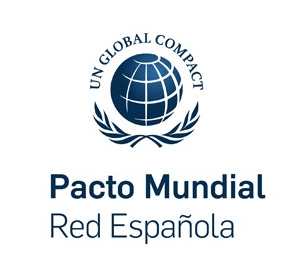UNITED NATIONS GLOBAL COMPACT

The United Nations Global Compact: A Global Commitment Towards Corporate Sustainability
The United Nations Global Compact is the largest global initiative for corporate sustainability. Established in the year 2000, its objective is to align business strategies and operations with ten universal principles related to human rights, labour standards, environmental protection, and the fight against corruption. Additionally, it encourages companies to actively participate in achieving the United Nations Sustainable Development Goals (SDGs).
This initiative currently has over 25,000 participants, including companies and organisations from more than 160 countries. Through the Global Compact, companies voluntarily commit to continuously improving their practices and reporting their annual progress in relation to the established principles.
The Ten Principles of the Global Compact
The Global Compact is founded on the following principles:
- Human Rights:
- Support and respect the protection of internationally proclaimed human rights.
- Ensure they are not complicit in human rights abuses.
- Labour Standards:
- Uphold the freedom of association and the right to collective bargaining.
- Eliminate forced and child labour.
- Promote equality of opportunity and eliminate discrimination in employment.
- Environment:
- Take a precautionary approach to environmental challenges.
- Undertake initiatives to promote greater environmental responsibility.
- Encourage the development and diffusion of environmentally friendly technologies.
- Anti-Corruption:
- Work against all forms of corruption, including extortion and bribery.
The Impact of the Global Compact on the Corporate Sector
Participation in the Global Compact provides businesses with the opportunity to improve their reputation and build trust among customers, investors, and employees. Companies that join the Global Compact do not only focus on enhancing their internal processes but also work to influence their supply chains to adhere to these principles. This contributes to creating a more ethical and responsible business environment.
One of the most prominent aspects of the Global Compact is its connection to the Sustainable Development Goals (SDGs). Companies play a crucial role in achieving the 17 SDGs established by the UN, which cover key areas such as poverty reduction, gender equality, access to quality education, climate action, and reducing inequalities. Through this collaboration, the Global Compact aims to accelerate progress towards a more sustainable, fair, and inclusive world.
Global and Local Networks
The Global Compact operates both globally and locally, offering businesses the opportunity to collaborate within a global network while also benefiting from local networks that provide specific support and knowledge tailored to each region or country. In Kenya, as in other countries, companies can take advantage of local networks to ensure the implementation of sustainable practices and contribute to the SDGs within their national context.
Benefits for Participating Companies
Joining the Global Compact offers several key benefits for businesses:
- Reputation and Trust: Companies participating in the Global Compact are viewed as responsible and ethical, which can enhance their image among consumers and business partners.
- Access to Resources and Knowledge: Participating companies gain access to tools, studies, and guidance on how to integrate the principles of the Global Compact into their day-to-day operations.
- Improved Risk Management: By addressing issues such as human rights and sustainability, companies can mitigate risks related to their reputation, compliance with regulations, and customer expectations.
- Collaboration Opportunities: The Global Compact fosters the creation of partnerships between businesses, non-governmental organisations, and governments to jointly address global challenges.
Commitment and Transparency
One of the core pillars of the Global Compact is transparency. Participating companies are required to submit annual reports, known as Communication on Progress (COP), in which they detail their progress in implementing the Ten Principles and the SDGs. These reports are made public, allowing stakeholders such as employees, consumers, and investors to assess the company’s performance in terms of sustainability and social responsibility.
Leading Kenyan Companies in the Global Compact
Many Kenyan companies have joined the Global Compact, committing to operate under these principles and contribute to the SDGs. Notable companies include Safaricom, KCB Group, and Equity Bank, which have implemented significant initiatives to reduce their carbon footprint, improve working conditions in their supply chains, and promote social inclusion.
The Future of the Global Compact
The Global Compact continues to evolve in response to emerging global challenges. As the world faces issues such as climate change, social inequality, and corruption, the role of businesses becomes increasingly important. The Global Compact not only serves as a platform to drive positive change but also provides companies with the opportunity to be part of the solution to the most pressing global challenges.
In conclusion, the United Nations Global Compact is a crucial initiative for promoting sustainability and social responsibility in the corporate sector. By implementing the Ten Principles and advancing the SDGs, participating companies actively contribute to creating a more just, inclusive, and sustainable world for present and future generations.